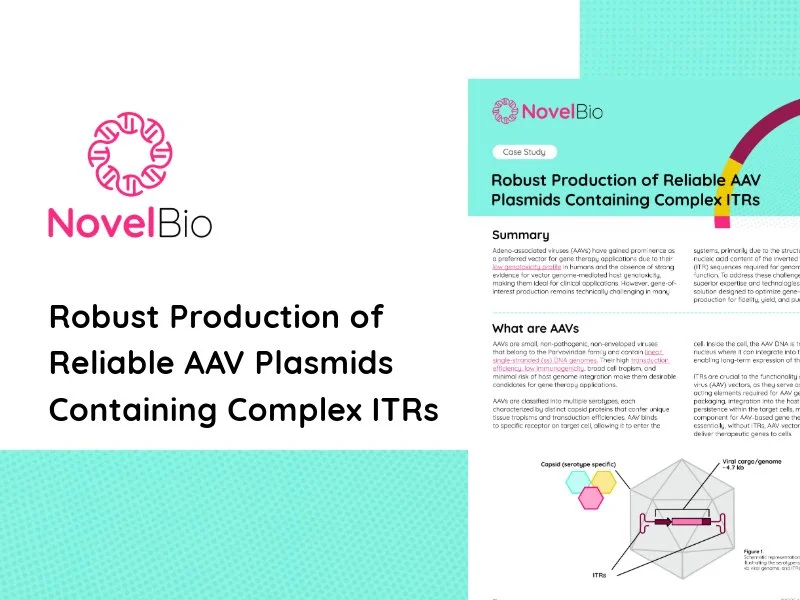Resources
Product Overview: NBx Cyclone™
NBx CyClone addresses the biggest pain points in plasmid DNA cloning for scientists at the lab bench.
Case Study: Production of AAV Plasmids Containing Complex ITRs
Discover how Novel Bio’s NBx Platform™ enables high-yield, high-fidelity production of AAV plasmids with complex ITR sequences—solving major gene therapy manufacturing challenges with scalable, low-endotoxin solutions.
R&D Grade Plasmid DNA Services Brochure
This two-page brochure describes Novel Bio’s R&D grade plasmid DNA services. Is failed DNA delivery halting your discovery? Here’s how we deliver high-quality plasmid DNA for even the most challenging gene, cell, and mRNA-based therapies and vaccines.
Plasmid DNA is the unsung hero of drugmaking
Novel Bio CEO Pankaj Khanna discusses bringing plasmid DNA manufacturing into the the era of genetic medicine.
Production of recombinant protein with <em>E. coli</em>
While E. coli remains crucial for plasmid DNA production, demand for innovations is growing, particularly for genetic medicines like gene therapies and RNA therapeutics. Novel approaches, including alternative production methods, are being explored to address the challenges of cost, scalability, and efficiency in plasmid manufacturing.
How <em>E. coli</em> cemented its place in the biotech industry
E. coli revolutionized biotech in 1973 when researchers developed recombinant DNA technology, enabling scientists to clone genes in bacteria. Today, E. coli remains central to DNA cloning, but modern challenges—like the need for larger, more complex plasmids—are pushing this 50-year-old technology to its limits.
Challenges and opportunities in plasmid DNA production
Plasmid DNA is crucial for gene therapy, RNA therapeutics, and vaccine production, but current manufacturing methods face challenges with yield, speed, and stability. Demand is growing for more reliable and scalable platforms for both research and clinical-scale plasmid production.










